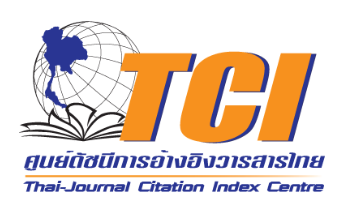Harnessing Social Capital for Inclusive Growth: Lessons from Wang Itok, Phitsanulok
DOI:
https://doi.org/10.69650/jcdrhs.2025.832Keywords:
Social Capital, Inclusive Growth, Community ResilienceAbstract
This research aims at examining the part of social capital, made up of trust, networks, and shared norms, in supporting inclusive growth as well as enhancing community resilience in Wang Itok Subdistrict, Bang Rakam District, Phitsanulok Province, Thailand. This research is conducted by using qualitative approach where data were collected though semi-structured interviews of 30 participants and non-participant observations to examine how strong social networks and high level of trust help the communities to access resources, coordinate activities, and respond to change. Reciprocity and mutual assistance play a crucial role in the process and are the key factors that define the culture of mutual assistance that does not only assist in fighting poverty but also contributes to sustainable development. The conclusions demonstrate that social capital is an important factor in the solution of the problems of social and economic character as well as in the creation of sustainable and resilient communities. This study presents practical uses of social capital to augment trust, boost community ties, and foster sustainable development, especially in remote and inaccessible regions.
References
Bourdieu, P. (1986). The Forms of Capital. In J. Richardson (Ed.), Handbook of Theory and Research for the Sociology of Education (pp. 241–258). New York: Greenwood. Retrieved from https://www.marxists.org/reference/subject/philosophy/works/fr/bourdieu-forms-capital.htm
Fukuyama, F. (1995). Trust: The Social Virtues and the Creation of Prosperity. New York: The Free Press.
Krishna, A. (2002). Active Social Capital: Tracing the Roots of Development and Democracy. New York: Columbia University Press. https://doi.org/10.7312/kris12570
Office of the National Economic and Social Development Council (NESDC). (2022). Poverty and Inequality Report 2022. Retrieved from https://www.nesdc.go.th/ewt_dl_link.php?nid=14557
Ostrom, E. (1990). Governing the Commons: The Evolution of Institutions for Collective Action. Cambridge: Cambridge University Press.
Pretty, J., & Smith, D. (2004). Social Capital in Biodiversity Conservation and Management. Conservation Biology, 18(3), 631–638. https://doi.org/10.1111/j.1523-1739.2004.00126.x
Putnam, R. D. (2000). Bowling Alone: The Collapse and Revival of American Community. In CSCWoo: Proceedings of the 2000 ACM Conference on Computer Supported Cooperative Work (p. 357). New York, NY: Association for Computing Machinery. https://doi.org/10.1145/358916.361990
Thai People Map and Analytics Platform (TPMAP). (2022). Poverty Statistics 2022 in Thailand. Retrieved from https://www.tpmap.in.th/2565/
Woolcock, M., & Narayan, D. (2000). Social Capital: Implications for Development Theory, Research, and Policy. The World Bank Research Observer, 15(2), 225–249. https://doi.org/10.1093/wbro/15.2.225
Downloads
Published
How to Cite
Issue
Section
License
Copyright (c) 2025 Journal of Community Development Research (Humanities and Social Sciences)

This work is licensed under a Creative Commons Attribution 4.0 International License.









